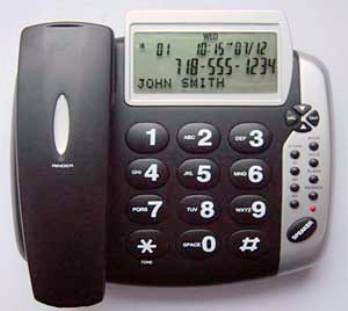The sacred cow of protection from unwanted sales calls has been breached.
“Telemarketers,” the New York Times writes, “increasingly are disguising their real identities and phone numbers to provoke people to pick up the phone. ‘Humane Soc.’ may not be the Humane Society. And think the I.R.S. is on the line? Think again. Caller ID, in other words, is becoming fake ID….

“ ‘You don’t know who is on the other end of the line, no matter what your caller ID might say,’ said Sandy Chalmers, a division manager at the Department of Agriculture, Trade and Consumer Protection in Wisconsin. Starting this summer, she said, the state has been warning consumers: ‘Do not trust your caller ID. And if you pick up the phone and someone asks for your personal information, hang up….’
“Several federal rules prohibit forms of caller ID spoofing and laundering. Under the Truth in Caller ID Act, passed last year and enforced by the F.C.C., it is illegal to transmit inaccurate or misleading caller ID information ‘with the intent to defraud, cause harm or wrongfully obtain anything of value.’ ”
In September of this year the trade commission received 140,000 complaints about robocalls, more than double of that last year.
“In North Carolina,” the Times writes, “officials said they were seeing big growth in caller ID spoofing from companies promising to consolidate credit card debt and, more recently, marketers selling what they claim are inexpensive medical products to treat diabetes. When the state tries to trace the numbers, officials say, they wind up following a labyrinth that leads to China, Panama or the Philippines. They have also heard of cases of caller ID reading ‘F.B.I.’ or ‘I.R.S.’
While the problem seems to be focused on landlines, officials worry that the tactic may soon spread to cell phones. Eventually, people may stop answering cell phone calls the same way some default to an answering machine on landlines.
It’s astounding to me that the extraordinary lengths some individuals will go to in order to trap victims, but apparently they are finding money between the circuits of our lives over the phone.
Comments










